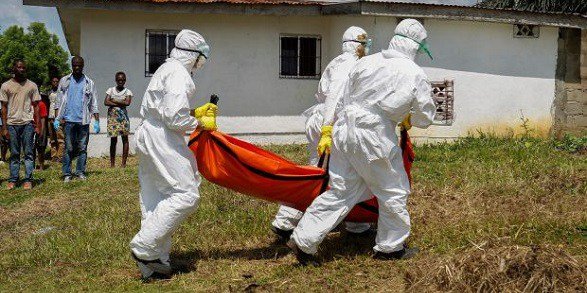A man in Spain died after contracting a lethal ‘bleeding eyes’ disease called Crimean-Congo hemorrhagic fever (CCHF), a deadly viral disease with a fatality rate of up to 40%. As per reports, the 74-year-old died on Saturday after being hospitalised near Madrid.
The man, whose identity has not been revealed, was admitted to Rey Juan Carlos University Hospital in Mostoles, Spain, after being bitten by a tick in Toledo, approximately 100 miles southwest of Madrid. After he was diagnosed with the rare Crimean-Congo hemorrhagic fever (CCHF) virus, he was transferred to a high-dependency isolation unit at La Paz University Hospital in Madrid to prevent transmission. Initially, his condition was deemed stable, but he subsequently deteriorated after developing all symptoms associated with CCHF.
Tragically, he died from the virus on Saturday, marking the first CCHF-related death in Spain since May 2020. Health authorities are likely to be on high alert to prevent further cases and contain the spread of this dangerous virus.
What is Crimean-Congo Hemorrhagic Fever (CCHF)?
CCHF is a viral illness with a fatality rate reaching up to 40%. It is transmitted primarily by ticks and is marked by severe bleeding, organ failure, along with other severe symptoms. This case in Spain underscores the urgent necessity for awareness and preventive steps against this lethal disease.
The 74-year-old man, whose identity has not been disclosed, died from CCHF after a tick bite in Toledo, Spain. Initially, he was treated at Rey Juan Carlos University Hospital, but his condition deteriorated, prompting a transfer to a high-dependency isolation unit at La Paz University Hospital. Despite intensive efforts to save him, the man unfortunately passed away, marking Spain’s first CCHF-related death since May 2020.
Symptoms and Progression
People infected with CCHF often start with flu-like symptoms, such as fever, muscle aches, and fatigue. As the disease gets worse, severe symptoms like extensive bruising, nosebleeds, and eye bleeding can occur. In critical cases, CCHF may cause multi-organ failure and death. Quick diagnosis and immediate medical care are vital to manage the disease effectively.
CCHF Preventive Measures and Vigilance
Following this tragic event, Spanish health officials are likely on high alert to prevent further cases and contain CCHF’s spread. Preventive actions include avoiding tick-prone areas, wearing protective clothing, and seeking immediate medical help if symptoms appear. Public education campaigns and strict monitoring are essential to detect and address CCHF outbreaks promptly.
CCHF Outbreak: Global Impact and Research Efforts
CCHF isn’t restricted to Spain but is a global issue, especially in areas where the virus-carrying ticks are common. Ongoing research aims to develop vaccines and antiviral treatments for CCHF. International collaboration and information exchange are vital in fighting the spread of this deadly virus.
Spain’s recent CCHF-related death is a serious reminder of the dangers posed by emerging infectious diseases. Increased vigilance, public awareness, and strong healthcare infrastructure are key to reducing the impact of CCHF and similar diseases. As research moves forward, staying informed and taking proactive steps are crucial to prevent and handle these health threats.






